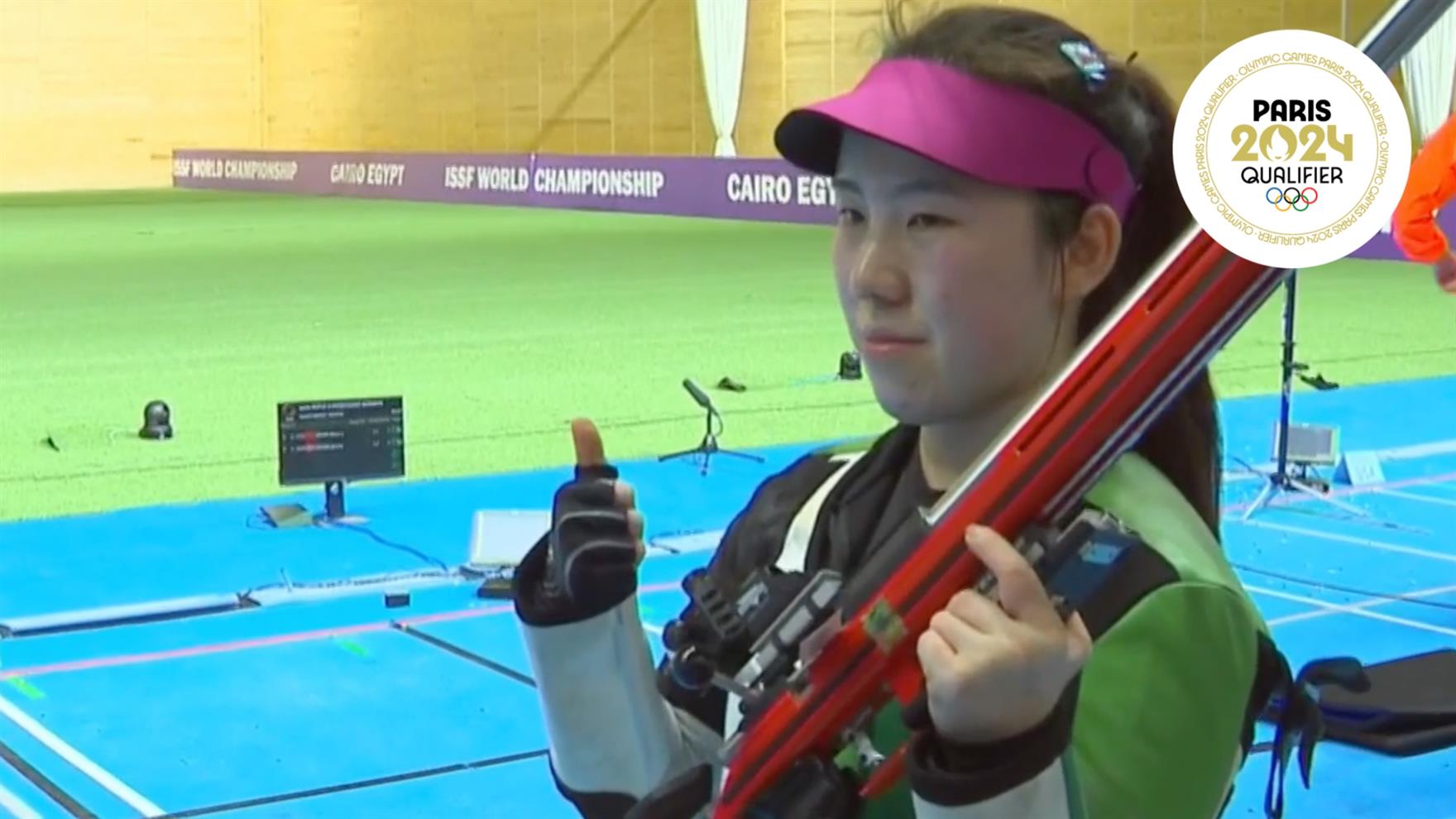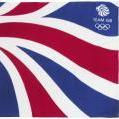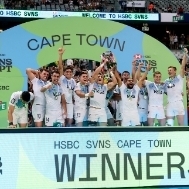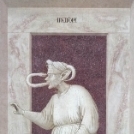
China impress again as World Rifle/Pistol Championships come to a close
China have again led the charge as the 50m and 25m events at the World Shooting Championships (Rifle and Pistol) came to a close. The Men's 50m Rifle 3 Positions, Men's Rapid Fire Pistol, Women's 50m Rifle 3 Positions and Women's 50m Pistol events all took place at the championships in Cairo, Egypt. The top four athletes in each event earned their country a spot at Paris 2024.
There were a couple of permutations: in each event, each athlete could only earn one place each, and those that have already done so (at the European Championships in Poland) could not earn another one.
Starting on the Men's 50m Rifle 3 Positions, and 101 athletes entered, with Norway's Jon-Hermann Hegg and the Czech Republic's Petr Nymburský ineligible to earn a spot (having already done so in Poland), meaning that ninety-nine were eligible. There was an additional pre-qualifying round (the elimination relay), in which Hungary's Zalan Pekler topped the scoresheet with 593 hits out of six hundred, as the total was whittled down to seventy. The top eight would make it out of qualifying, with six hundred shots once more. It was China's Liu Yukun who was top with 596, with India's Swapnil Kusale on 593 (40x) and Ukraine's Serhiy Kulish on 593 (37x) in second and third. Polish duo Maciej Kowalewicz (37x) and Tomasz Bartnik (32x) were next on 592, with Hegg (30x) joining Jonghyun Kim (30x) of South Korea on 591. The eighth spot went to Germany's Maximilian Dallinger, who was on 590 (42x), and beat out Denmark's Steffen Olsen (36x) and Norway's Simon Claussen (35x) to the final spot by virtue of having more inner tens shot.
To the ranking match, where all eight would face off, with two series each in all three positions. Then, the bottom two would be eliminated, with an additional series in the standing position, where two more would be eliminated, and then another series in that position, where two more would be eliminated and the remaining two would advance to the gold medal match. After two series of each, it would be Dallinger (305.7) and Kim (304.5) that would be eliminated. The German struggled with the standing position after doing creditably with the first two, while Kim couldn't recover after a bad start kneeling. After the next series, subpar performances eliminated Liu (357.0) and Kowalewicz (356.6). In the final series, Kulish extended his lead with a final score of 413.9 in the final, to join Bartnik who struggled somewhat but also had enough of a lead to go through with 409.4. Hegg closed the gap to 407.9 while Kusale had a bad series that cost him a big chance to make the final and finished fourth on 407.6. In the gold medal match, both athletes would take turns shooting, with the higher score earning the athlete two points (if they were tied, both would have one point), and the first to sixteen being crowned world champion. With the score at 8-6 to Kulish, the Ukrainian won the next four shots to claim a 16-6 win. Thus, the first quota spots went to Ukraine (Kulish) and Poland (Bartnik). The next would ordinarily go to Hegg, but as he already earned a spot at the European championships, the next spots went to India (Kusale) and China (Liu) instead.
In the Men's Rapid Fire Pistol, seventy-eight athletes entered, with France's Clément Bessaguet and Germany's Oliver Geis earning a spot in Poland, the other seventy-six were eligible. In qualifying, there would be six hundred shots, with the top eight making it. Bessaguet topped qualifying with 589, with South Korea's Lee Gunhyeok (23x) and Germany's Christian Reitz (19x) on 586. China's Lu Zhiming was next on 585, with the Czech Republic's Matej Rampula (24x), Pakistan's Ghulam Mustafa Bashir (19x), South Korea's Lee Jaekyoon (19x), and Germany's Florian Peter (19x) all qualifying, and Ukraine's Pavlo Korostylov (19x) just missing out: with the same number of tens, the next tiebreaker for the four was the last series: where Bashir earned 95 points, Lee and Peter 94, and Korostylov just 92. The ranking matches would be split into two matches of four, with the top two after four series of five (twenty shots) advancing. Bessaguet, Lee Jaekyon, Rampula, and Reitz were in the first match, but Lee's perfect second series was enough to carry him through. It was a three-way race for the second spot with Rampula on ten and both Bessaguet and Reitz on nine with one shot to go, but two misses for Rampula eliminated him while his adversaries got a perfect five. Thus, Bessaguet and Reitz entered a shoot-off, with the Frenchman winning 5-3. Lee was through on fifteen, as was Bessaguet on fourteen, while Reitz (fourteen) and Rampula (thirteen) missed out.
In the other match, Bashir, Lee Gunhyeok, Lu, and Peter did battle. This race was much less close: Lee was through with sixteen alongside Bashir on fifteen, with Lu on thirteen and Peter on twelve. In the final, whoever was fourth would be eliminated after four series of five (twenty shots), with another eliminated after two more series (ten more shots), and a winner declared after two more. After twenty shots, both Bessaguet and Lee Gunhyeok had eighteen and were through, but Bashir and Lee Jaekyon both had fifteen: both missed their twentieth shot to avoid a shoot-off. In the shoot-off, it was tied 3-3, so another was held, with Bashir winning 5-3, eliminating one of the two South Koreans. But Bashir took just four of his next ten and was eliminated with nineteen hits to claim bronze. Meanwhile, Lee Jaekyon had hit nine of those ten while Bessaguet could only hit five, opening a 27-23 lead. But Lee missed six of the next four, finishing on thirty-one: his French opponent needed eight for a shoot-off, or nine for victory, but could only manage seven to finish on thirty. Thus, Lee Jaekyon was champion and earned the first quota for South Korea. With Bessaguet ineligible having already won a spot in Poland, the next spot went to Bashir. Lee Gunhyeok was ineligible as well as South Korea already had a quota in this event. For the final two spots, scores in the ranking round were compared. Reitz earned the first spot, meaning Germany have now a full team of two in this event, with the other spot going to China (Lu): tied with Rampula, Lu got the nod based on superior qualification.
102 entered 50m Rifle 3 Positions qualification, with Denmark's Rikke Maeng Ibsen and the Czech Republic's Veronika Blažíčková already qualified, meaning one hundred remained who could. China's Shi Mengyao qualified top with 590 in the elimination relay, as the final seventy took off, again fighting for eight positions over sixty shots (and a maximum of six hundred points). China's Miao Wanru (32x) and Norway's Jenny Stene (28x) were top, ahead of Norwegian Jeanette Hegg Duestad on 591. The USA's Sagen Maddalena was next on 590, with Mongolia's Yesugen Oyunbat on 589. It was hugely close for the last three spots with five shooters on 587. Lee Eunseo of South Korea (33x), India's Anjum Moudgil (31x) and Austria's Nadine Ungerank (28x) all qualified, with Germany's Lisa Mueller (28x) and Switzerland's Nina Christen (27x) missing out: Ungerank getting the nod ahead of Mueller due to a better score on the final standing series (98-97).
The format for the ranking match was the same as in the men's event. Both Oyunbat (301.1) and Ungerank (300.6) struggled in the standing position and this was their downfall as they were the first to go. The same could be said about Lee (356.8) and Moudgil (355.4) and they couldn't recover in the final series and also were eliminated. Stene (412.5) and Miao (411.4) had strong final series and had also been the most consistent, putting them through to the gold medal match ahead of Duestad (410.0) and Maddalena (409.9). In the gold medal match, Stene opened a 10-4 lead before losing the next four to go 12-10 down. Miao was world champion after winning 17-13 in the end. Therefore, the first places went to China (Miao) and Norway (Stene). With Norway having already gotten a place, Duestad was ineligible for the next spot, so it went to the USA (Maddalena) instead, with South Korea (Lee) getting the last place.
Finally, in the Women's 25m Pistol, ninety-one entered: German Doreen Vennekamp and Pole Klaudia Breś had already qualified meaning eighty-nine were eligible. In qualifying, where the maximum score was six hundred, Vennekamp was top on 590, with Iranian Haniyeh Rostamiyan next on 588. Indian Rhythm Sangwan was next on 587, ahead of Bulgarian Antoaneta Kostadinova on 586. France's Mathilde Lamolle was next on 585 (21x), ahead of China's Chen Yan, also on 585 (21x) by virtue of a superior final series: 100-99. South Korea's Kim Jangmi was seventh on 584, with a close-run four-way tie for 583 and the final spot, with Greece's Anna Korakaki (28x) just beating out German Monika Karsch (23x), Indian Manu Bhaker (19x) and Michelle Skeries (15x), also of Germany. The ranking matches worked just like the Men's Rapid Fire Pistol, with Kim, Lamolle, Sangwan and Vennekamp. Lamolle was well behind after three series with six, with Sangwan leading on eleven, Kim on ten (having missed three of her last five in the third series) and Vennekamp on nine. However, Sangwan remarkably missed all five of her final shots to get eliminated: Vennekamp and Kim went through on fourteen, Sangwan was eliminated on eleven ahead of Lamolle on ten.
In the other ranking match it was Chen, Korakaki, Kostadinova, and Rostamiyan who were doing battle. Kostadinova led after three with twelve hits, with Rostamiyan on ten edging out Chen and Korakaki on nine. However, Rostamiyan only hit one of her final four while Korakaki only hit two. Thus it was Kostadinova (sixteen) who went through with Chen (thirteen), and Rostamiyan and Korakaki both missed out on eleven. In the medal match, Kostadinova lost her form and missed all shots in the third series, and was generally shaky, hitting just eight out of twenty and was eliminated miles behind. With the medallists decided, it was a tight battle as with Chen in front on fifteen after foru series, Kim and Vennekamp were both on fourteen with one to go. Chen was perfect to mean she was pretty much safe in the fifth, and Kim hit four and Vennekamp hit three. In the next, both were perfect, meaning the German was eliminated and won bronze on twenty-two. Meanwhile, both Chen (who missed two in the sixth series) and Kim were both on twenty-three. Chen had the advantage, 28-27 after hitting a perfect seventh series, but opened the door by missing two in her final series. Kim hit a perfect five to win gold, 32-31. The first quotas went to South Korea (Kim) and China (Chen). Vennekamp was ineligible having already won a spot, so the next place went to Bulgaria (Kostadinova). The next spot was based on ranking round, but with Korakaki, Rostamiyan, and Sangwan all level on eleven, Iran got the final place based on Rostamiyan's superior qualifying performance.
With these championships now wrapped up, the next chance to watch shooting places be decided for Olympic places is the CAT XIII Championship in Lima, Peru, next month.
Patrick Green
Writer, Totallympics News









Recommended Comments
There are no comments to display.
Create an account or sign in to comment
You need to be a member in order to leave a comment
Create an account
Sign up for a new account in our community. It's easy!
Register a new accountSign in
Already have an account? Sign in here.
Sign In Now